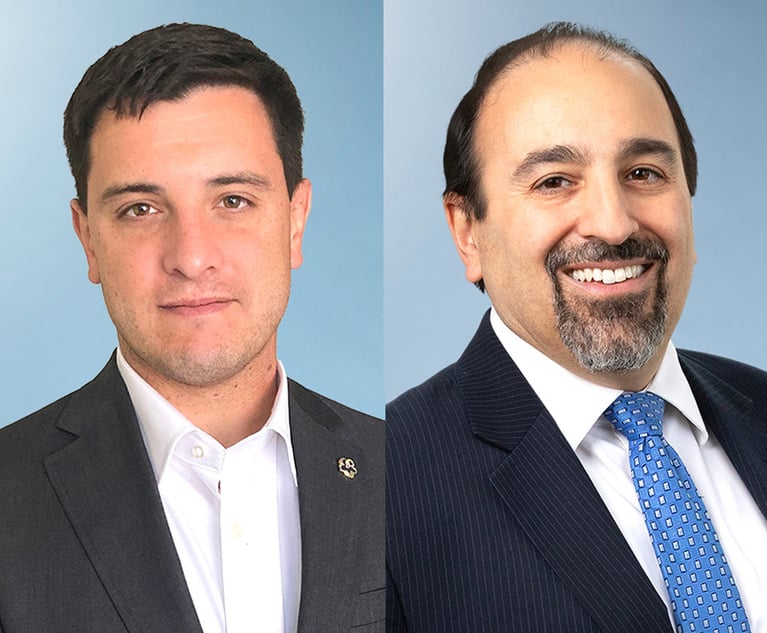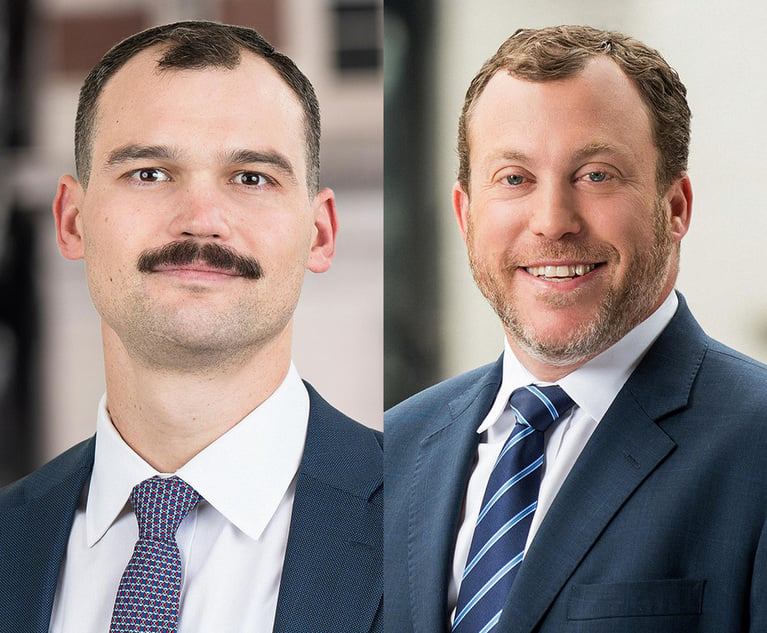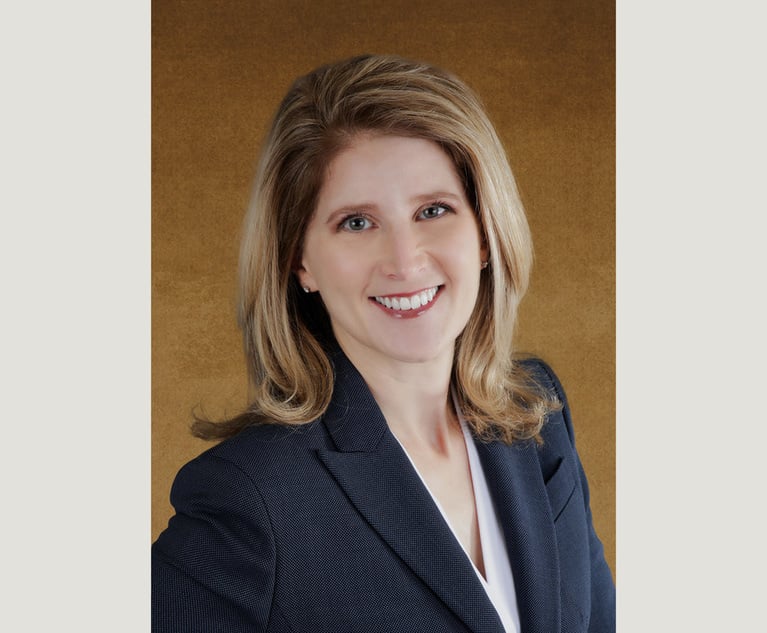 Joseph R. Decker, left, and Robert E. Cannuscio, right, of Faegre Drinker Biddle & Reath. Courtesy photos
Joseph R. Decker, left, and Robert E. Cannuscio, right, of Faegre Drinker Biddle & Reath. Courtesy photos AI and Big Data: Why You May Not Want to Let Your SaaS Agreements Auto-Renew Anymore
Recent years have seen a rapid change in the technology, economics and regulations driving the software industry, such as the rise of artificial intelligence (including generative AI, like ChatGPT), the associated explosion of "big data" and the emergence of a patchwork of new privacy laws and data regulations striving to address the implications of these new technologies.
April 16, 2024 at 11:00 AM
10 minute read
Special SectionsIt may be time to renegotiate your agreements with software and technology vendors. Software vendors often structure these agreements with unlimited automatic renewals, under the assumption that customers will often just take the path of least resistance and allow the agreement to continually renew. However, recent years have seen a rapid change in the technology, economics and regulations driving the software industry, such as the rise of artificial intelligence (including generative AI, like ChatGPT), the associated explosion of "big data" and the emergence of a patchwork of new privacy laws and data regulations striving to address the implications of these new technologies. These changes have shifted the value of market expectations for several key provisions in most software/SaaS agreements, and it may be time for your organization to renegotiate these provisions to capture that value. In this article, we'll take a closer look at the changes in the value of market-expectation for provisions including training of AI models using customer data, ownership of customer (and other) data, including use and aggregation of customer data, and potential exposure to and liability for violations of new privacy laws and data security regulations.
Introduction
Technology is critical in every industry. In recent years, your industry has likely begun to see the rise of AI and the importance and value of data. But have these advancements made their way into your technology, software and data-related contracts?
This content has been archived. It is available through our partners, LexisNexis® and Bloomberg Law.
To view this content, please continue to their sites.
Not a Lexis Subscriber?
Subscribe Now
Not a Bloomberg Law Subscriber?
Subscribe Now
NOT FOR REPRINT
© 2025 ALM Global, LLC, All Rights Reserved. Request academic re-use from www.copyright.com. All other uses, submit a request to [email protected]. For more information visit Asset & Logo Licensing.
You Might Like
View All
Pa. Supreme Court to Decide Enforceability of 'Browsewrap' Arbitration Agreements
8 minute read
From a Mediator’s Perspective: Common Mis-steps That Parties Make at Mediation
6 minute readLaw Firms Mentioned
Trending Stories
- 1RIP DOJ FCPA Corporate Prosecutions
- 2Federal Trade Commission’s Updates to the Health Breach Notification Rule Now In Effect
- 3I’m A Lawyer, What Can I Sell?
- 4Internal GC Hires Rebounded in '24, but Companies Still Drawn to Outside Candidates
- 5How I Made Office Managing Partner: 'Don’t Be an Opportunity Killer,' Says Thomas Haskins of Barnes & Thornburg
Who Got The Work
J. Brugh Lower of Gibbons has entered an appearance for industrial equipment supplier Devco Corporation in a pending trademark infringement lawsuit. The suit, accusing the defendant of selling knock-off Graco products, was filed Dec. 18 in New Jersey District Court by Rivkin Radler on behalf of Graco Inc. and Graco Minnesota. The case, assigned to U.S. District Judge Zahid N. Quraishi, is 3:24-cv-11294, Graco Inc. et al v. Devco Corporation.
Who Got The Work
Rebecca Maller-Stein and Kent A. Yalowitz of Arnold & Porter Kaye Scholer have entered their appearances for Hanaco Venture Capital and its executives, Lior Prosor and David Frankel, in a pending securities lawsuit. The action, filed on Dec. 24 in New York Southern District Court by Zell, Aron & Co. on behalf of Goldeneye Advisors, accuses the defendants of negligently and fraudulently managing the plaintiff's $1 million investment. The case, assigned to U.S. District Judge Vernon S. Broderick, is 1:24-cv-09918, Goldeneye Advisors, LLC v. Hanaco Venture Capital, Ltd. et al.
Who Got The Work
Attorneys from A&O Shearman has stepped in as defense counsel for Toronto-Dominion Bank and other defendants in a pending securities class action. The suit, filed Dec. 11 in New York Southern District Court by Bleichmar Fonti & Auld, accuses the defendants of concealing the bank's 'pervasive' deficiencies in regards to its compliance with the Bank Secrecy Act and the quality of its anti-money laundering controls. The case, assigned to U.S. District Judge Arun Subramanian, is 1:24-cv-09445, Gonzalez v. The Toronto-Dominion Bank et al.
Who Got The Work
Crown Castle International, a Pennsylvania company providing shared communications infrastructure, has turned to Luke D. Wolf of Gordon Rees Scully Mansukhani to fend off a pending breach-of-contract lawsuit. The court action, filed Nov. 25 in Michigan Eastern District Court by Hooper Hathaway PC on behalf of The Town Residences LLC, accuses Crown Castle of failing to transfer approximately $30,000 in utility payments from T-Mobile in breach of a roof-top lease and assignment agreement. The case, assigned to U.S. District Judge Susan K. Declercq, is 2:24-cv-13131, The Town Residences LLC v. T-Mobile US, Inc. et al.
Who Got The Work
Wilfred P. Coronato and Daniel M. Schwartz of McCarter & English have stepped in as defense counsel to Electrolux Home Products Inc. in a pending product liability lawsuit. The court action, filed Nov. 26 in New York Eastern District Court by Poulos Lopiccolo PC and Nagel Rice LLP on behalf of David Stern, alleges that the defendant's refrigerators’ drawers and shelving repeatedly break and fall apart within months after purchase. The case, assigned to U.S. District Judge Joan M. Azrack, is 2:24-cv-08204, Stern v. Electrolux Home Products, Inc.
Featured Firms
Law Offices of Gary Martin Hays & Associates, P.C.
(470) 294-1674
Law Offices of Mark E. Salomone
(857) 444-6468
Smith & Hassler
(713) 739-1250







